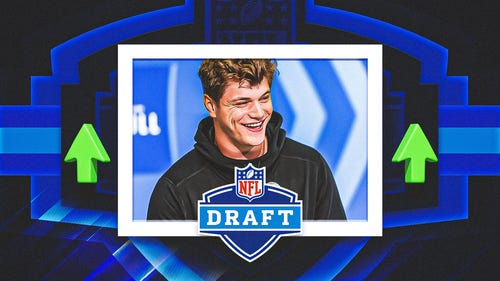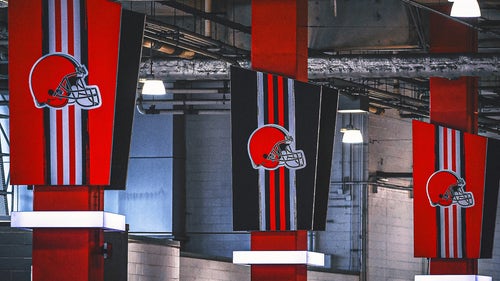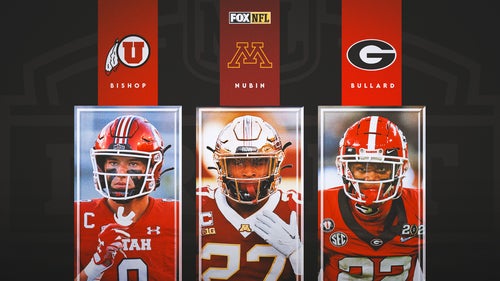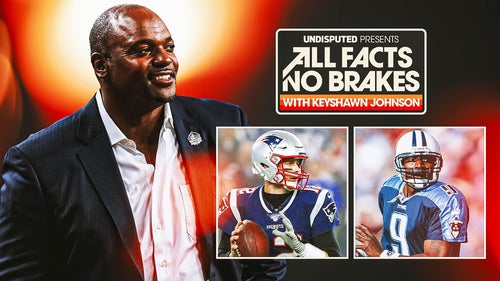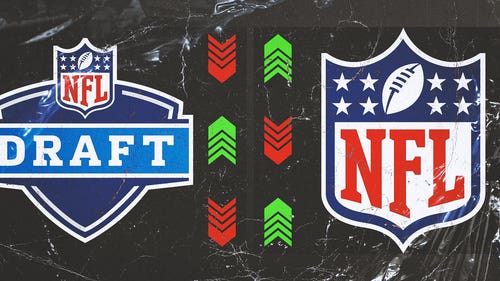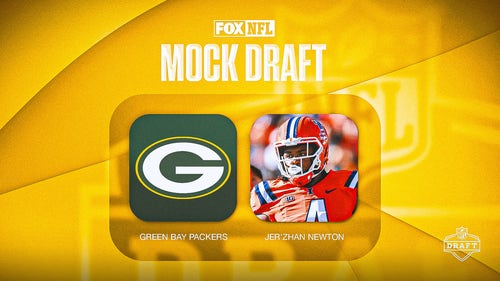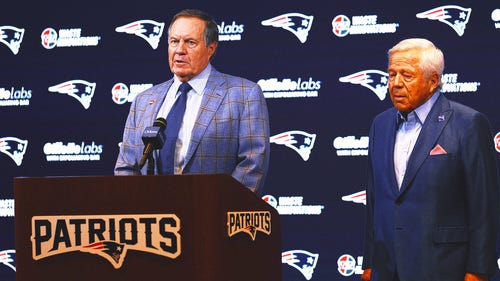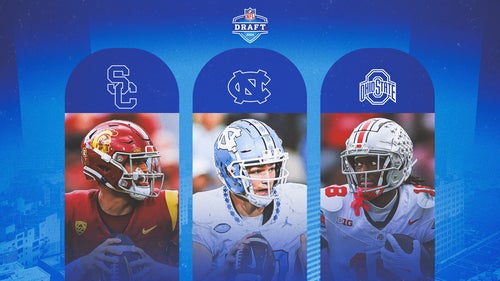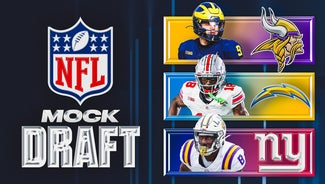
Mourning continues for Broncos
One was a Mohawk-wearing, superstar-in-the-making cornerback whose New Year's Eve celebration ended tragically in his white limo, sprayed with bullets from a Denver gang member.
The other was a backup running back, playing in a charity basketball tournament, only to see an apparent heart ailment take his life on the court seven weeks later.
The third was perhaps even lesser known, a fifth-round draft pick with a young son and a wide smile, but with uncertainties inside that apparently caused him to take his own life Monday afternoon.
Four years, three Denver Broncos players, all gone much too soon.
Perhaps the one common denominator in the deaths of Darrent Williams, Damien Nash and Kenny McKinley is that they all were viewed as good guys, in their 20s, seemingly with so much life ahead of them.
"This makes the game seem kind of small at times," said Broncos coach Josh McDaniels, just 11 years older than McKinley, a player whose passing prompted a heartfelt press conference where emotions spilled over.
McDaniels went on to describe McKinley, a member of the coach's first draft class in 2009, as a "special" person, with a great big smile, a bigger personality and a promising future on the football field.
Though McKinley was on injured reserve, which meant he couldn't play this year, questions abound as to his state of mind.
Teammates and coaches, both in Denver and South Carolina, where McKinley played in college, said they saw no signs of this impending tragedy, that McKinley was all smiles even as he cleared out much of his locker a few weeks ago.
But the Arapahoe County medical examiner late Tuesday released an autopsy report ruling McKinley's death a suicide, and reporting that there was a strong smell of marijuana in the house.
It also reported a conversation McKinley had with friends while playing dominoes a month ago. "I could just kill myself," McKinley reportedly told his friends, none of whom took him seriously.
The report further noted that McKinley was depressed over a second knee operation that sidelined him for the 2010 season, and indicated he didn't know what he'd do without football.
For families of suicide victims, the reports seem all too familiar.
Tuesday marked the sixth anniversary of when Coloradoan Nate Oderberg buried his son Gabe, who like McKinley was just 23 when he took his own life. That was on Sept. 21, 2004, after several failed comebacks at the University of Colorado and a senior season spent injured.
The elder Oderberg said no one knows exactly what's going on inside an injured player's mind and that injuries, operations and medications may have a cumulative effect.
"If he's on IR and sees the team going (off) together and he's not going, maybe he's questioning the fact of whether he's going to go again or not," said Oderberg.
"Maybe he doesn't see any hope for himself," Oderberg said of McKinley. "You say, 'At 23, how can he have that narrow vision?' He's been playing since he was young. He's invested all his life in this. Then another surgery, and it's, 'You're done.'"
McDaniels said the decision for McKinley to have the surgery and go on IR was reached mutually.
But despite the smiles, that doesn't mean it didn't weigh on McKinley, something his agent and the coroner's report acknowledged.
An equally unanswered question is how much this will weigh on a Broncos franchise that has seen tragedy after tragedy befall its players.
Publicist Jim Saccomano put it succinctly.
"There's no good time for bad news," he said.
Another team official, not wanting to speak on the record, noted that the deaths of Williams and Nash happened early in the offseason, giving the team time to grieve.
McKinley's death comes two games in, with a giant AFC showdown with the Indianapolis Colts and Peyton Manning looming on Sunday.
How will the team deal with it? That remains to be seen.
Some players on Wednesday didn’t want to talk about it.
Others, like linebacker Mario Haggan, opened up and said he was still hurting inside.
“He’ll definitely be on my mind, will probably be on my mind ‘til I go under,” Haggan said of McKinley.
That very well could be the case as well with the emotional McDaniels, who visibly lost his composure Tuesday in talking about McKinley. Will overcoming this latest Broncos' tragedy be a defining moment in his young career?
Saccomano offered no predictions.
"But his upbringing has prepared him to handle a lot of things," Saccomano said in describing a young coach mature beyond his years.
While some Bronco loyalists must be wondering what's next, Saccomano, without diminishing each loss, tried to add some perspective.
"Sometimes things just happen," Saccomano said. "When Darrent was killed, he was the first active Bronco to ever pass away. The team had gone 45 years without this ever happening. Now we've had three. It's shocking and tragic. All you can do is the best you can and grieve."
McDaniels said the Broncos are planning a private memorial Friday, a moment of silence before the game Sunday and indicated players will wear decals with McKinley’s No. 11 on their helmets. They also will keep his locker intact at Broncos headquarters. And team representatives would be at McKinley’s funeral Monday in Georgia.
McDaniels further said counselors would be available to players and staff for as long as necessary.
Judging from those who have dealt with such tragedies, it won't be easy.
Oderberg still has difficulty this time of year, even if he now is a volunteer with the Second Wind Fund, a youth-suicide preventation organization that he credits for saving more than 1,000 lives.
"Surgery in itself is traumatic," Oderberg said. "You have to make sure everybody rehabs and transitions away from their injury. You've got to see them make that transition. You can't just patch them up, let them go home and put a Band-Aid on it."
That's why Oderberg, unlike most sports fans, finds himself reading the injury reports after each game. To him, they can be more important than the main story or stats.
He's convinced there's a correlation between concussions and depression and suicide, as well as orthopedic surgeries and depression and perhaps suicide.
He pointed to former Colorado All-American Ted Johnson. The linebacker retired from the New England Patriots after a series of concussions left him not only worrying about the early onset of dementia and Alzheimer's but struggling with depression and amphetamine addiction.
Johnson has even offered, after his death, to have Boston University researchers study his brain to see what effects concussions may have had on it.
Even lesser injuries can take their toll emotionally.
Former Broncos defensive lineman/Colorado star Alfred Williams admitted the desperation he had felt because of injury.
Williams, now a Denver broadcaster, recalled numerous panic attacks, especially while flying, after surgery ended his pro career.
"I'd flown thousands of miles," he said on Denver sports radio station 104.3 FM Tuesday. "I'd never had any issues. But because of the way my career ended, it really made for some tough times. It made for a lot of soul searching. I finally threw everything that wasn't important to me out the window and focused on my family."
Williams, of course, was once a star, with a pair of Super Bowl rings.
McKinley, though the all-time leading receiver at South Carolina, was still a relative unknown with only 10 NFL touches. Though a member of the Broncos family, he was not an active part of the team anymore.
"Plenty of guys got knocked out this weekend," Oderberg said of the NFL injury report. "We know who they are on Sunday mornings. Do we follow up on Monday? We don't follow the guys unless they're heroes. How many guys in Denver even knew who Kenny McKinley was?"
Former Detroit Lions quarterback Eric Hipple certainly knows now. Hipple’s 15-year-old son Jeff took his own life in April 2000, and Eric believes both the military and NFL are starting to take a closer look at depression and its consequences.
Hipple, who is on a panel speaking in Washington, D.C., this week that included former surgeon general David Satcher, retired Buffalo Bills safety Matt Kelso and wife of retired Hall of Famer John Mackey, said he can understand where a person’s perspective can get skewed — no matter whether they are in the NFL or not.
“The losses start stacking up,” said Hipple, who has made it his job to help educate people about illnesses and factors that lead to suicide.
“(McKinley) might have been looking at a dream lost, lost future income, loss of structure, loss of self-esteem, loss of identity. All those things lost with a single injury.”
In the end, Hipple said NFL players may be no different than the rest of the population when it comes to mental health issues. In the U.S., Hipple said there are 34,000 suicides annually. Suicide, he added, is the second-leading cause of death for those of college age, and the third-leading cause of death for those aged 15-24.
“These community forums are huge. It shows this is an issue the NFL is thinking about and maybe getting out in front of,” Hipple said.
Unfortunately, it is too late for Kenny McKinley.






































































































































